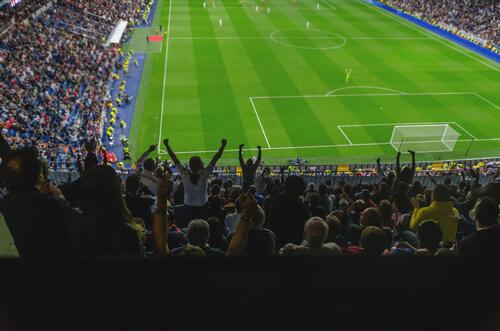How Does the Presence of Others Influence Our Behavior?

How does the presence of others influence our behavior? Do you think we act the same when someone’s watching us? Do you think that someone who judges or values us has the same effect as a simple observer? Does the presence of others improve or impair your performance? Keep reading to discover the answers to these questions.
One of the first researchers to become interested in these questions was Norman Triplett. He confirmed that others’ presence improves our performance. He carried out his experiments with cyclists and assessed their data to compare their solitary workouts to workouts with other cyclists.
Norman did another experiment that involved children. He observed that, when children were with peers, work times decreased. When children were alone, they worked slower.
These situations proved that when you work with your coworkers or people who are doing the same task as you, performance improves. But what happens when those observers are mere spectators?

Social facilitation and social inhibition
Social facilitation refers to how the presence of others helps us improve and perform better. When does this happen? This effect occurs when the task is easy for the person doing it. This also happens when the task doesn’t require significant concentration and the subject can do the task without complications.
The opposite effect is called social inhibition. When a person isn’t familiar with the task or when it requires significant concentration and involvement, the presence of others negatively influences performance. This is social inhibition.
These two effects are relevant when we’re focusing on the type of task at hand. Regardless of whether they’re judging our work or are mere spectators, the type of task changes how we respond to their presence. You can either benefit from someone watching you do your best or you can choose to work alone to focus on getting better at something. Everything depends on the task in this scenario.
Does the number of people watching you matter?
Researchers have conducted other studies in this field. These studies include athletics. Researchers found that social facilitation occurs when there are less than ten observers. They also observed that, when there are over ten observers, neither social facilitation nor inhibition occurs.

This is also related to the number of observers. When there are ten or fewer people around us watching, we can hear their comments and appreciate their gestures. This is what increases our skills. They exert an influence that changes how we act. However, when there’s a large audience, we lose control over the spectators and therefore stop being sensitive to their influence.
Conclusions
The conclusions that we can draw about the presence of others has to do with the type of task at hand. When the task is easy, our performance improves. On the other hand, performance decreases when the task is complicated and requires more attention than usual.
Overactivity from the presence of others can draw our attention away from the task. Therefore, if it’s a difficult task that we need to focus on, it’s only natural for the task to become more difficult when our attention isn’t focused. When others are around, they can distract us.
How does the presence of others influence our behavior? Do you think we act the same when someone’s watching us? Do you think that someone who judges or values us has the same effect as a simple observer? Does the presence of others improve or impair your performance? Keep reading to discover the answers to these questions.
One of the first researchers to become interested in these questions was Norman Triplett. He confirmed that others’ presence improves our performance. He carried out his experiments with cyclists and assessed their data to compare their solitary workouts to workouts with other cyclists.
Norman did another experiment that involved children. He observed that, when children were with peers, work times decreased. When children were alone, they worked slower.
These situations proved that when you work with your coworkers or people who are doing the same task as you, performance improves. But what happens when those observers are mere spectators?

Social facilitation and social inhibition
Social facilitation refers to how the presence of others helps us improve and perform better. When does this happen? This effect occurs when the task is easy for the person doing it. This also happens when the task doesn’t require significant concentration and the subject can do the task without complications.
The opposite effect is called social inhibition. When a person isn’t familiar with the task or when it requires significant concentration and involvement, the presence of others negatively influences performance. This is social inhibition.
These two effects are relevant when we’re focusing on the type of task at hand. Regardless of whether they’re judging our work or are mere spectators, the type of task changes how we respond to their presence. You can either benefit from someone watching you do your best or you can choose to work alone to focus on getting better at something. Everything depends on the task in this scenario.
Does the number of people watching you matter?
Researchers have conducted other studies in this field. These studies include athletics. Researchers found that social facilitation occurs when there are less than ten observers. They also observed that, when there are over ten observers, neither social facilitation nor inhibition occurs.

This is also related to the number of observers. When there are ten or fewer people around us watching, we can hear their comments and appreciate their gestures. This is what increases our skills. They exert an influence that changes how we act. However, when there’s a large audience, we lose control over the spectators and therefore stop being sensitive to their influence.
Conclusions
The conclusions that we can draw about the presence of others has to do with the type of task at hand. When the task is easy, our performance improves. On the other hand, performance decreases when the task is complicated and requires more attention than usual.
Overactivity from the presence of others can draw our attention away from the task. Therefore, if it’s a difficult task that we need to focus on, it’s only natural for the task to become more difficult when our attention isn’t focused. When others are around, they can distract us.
This text is provided for informational purposes only and does not replace consultation with a professional. If in doubt, consult your specialist.







